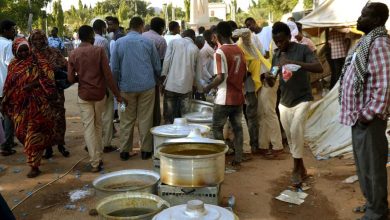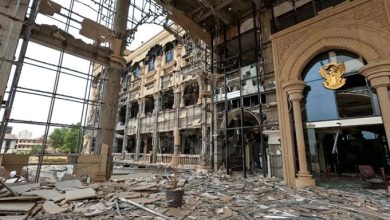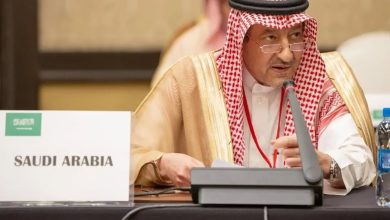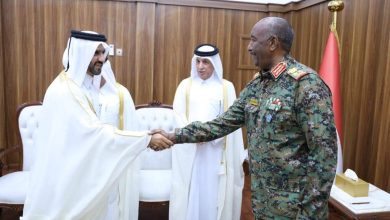What is Behind Resuming Relations with Iran?
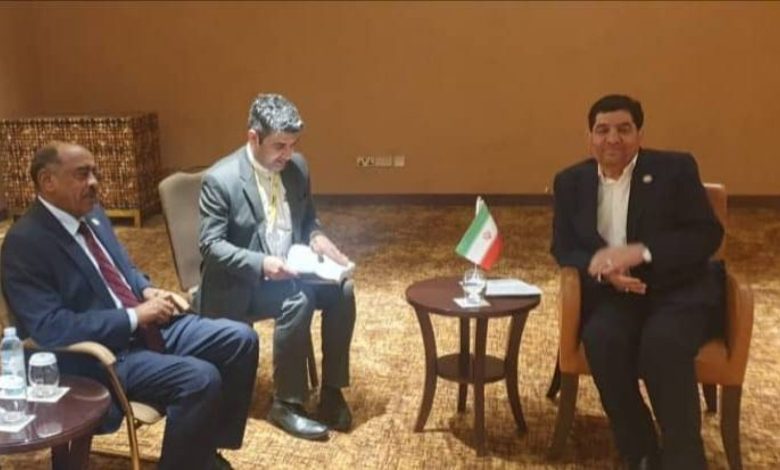
Agencies – Sudan Events
The announcement by Sudanese and Iranian officials that they are working to accelerate the steps to reopen the two embassies between the two sides has raised several Sudanese questions regarding the implications of pushing towards that path in the midst of a war that has been raging in the country for 9 months between the army and the Rapid Support Forces, which has claimed the lives of thousands and displaced millions, according to international assessments.
On Saturday, Sudanese Acting Foreign Minister Ali Al-Sadiq met in Uganda with the Iranian First Vice President, Mohamed Mokhber, on the sidelines of their participation in the “Non-Aligned Countries Summit” hosted by Kampala. A Sudanese statement about the meeting stated that the officials “discussed restoring bilateral relations between the two countries and accelerating steps to reopen embassies between them.”
Sudan severed its relationship with Iran in 2016, but last October its foreign ministry announced the resumption of diplomatic relations, but no additional steps have been taken since then. The Sudanese-Iranian announcement about accelerating efforts to resume bilateral relations raised different assessments about the target, especially in light of the continued complexity of the political solution in the country, and the sharp growth in polarization and the arming and mobilization of civilians in the context of the reverse battles between the two sides of the war.
A former senior official in the Sudanese “Islamic Movement” spoke to Asharq Al-Awsat on condition that not to disclosed, and he believed that “the Islamists (Sudan Brotherhood) are working to exploit the relationship with Iran with the aim of obtaining the army’s support with weapons.” He explained that “the army needs to be armed, in light of the support i
The (Rapid Support) is receiving.”
The source added, “Iran was fully prepared to restore relations with Sudan after the fall of President Omar Al-Bashir’s regime, but the transitional civil government headed by the Chairman of the Sovereign Council, Abdul Fattah Al-Burhan, and Prime Minister Abdallah Hamdouk, did not have the desire to do so.” He added, “Al-Burhan was conservative to the point of categorically rejecting any step toward restoring relations between the two countries, because he began to build relations with Israel.”
In turn, political analyst, Abu Dhar Ali Al-Amin, says, “The President of the Sovereign Council, Abdul Fattah Al-Burhan, is facing pressure from countries such as: the United States of America and Britain in favor of the (Forces of Freedom and Change) and (Rapid Support),” adding that “this trend ( Towards Iran) has two goals: The first: (creating a balance through Iran, China, and Russia), and Iran constitutes an important and influential key in this direction. The second is military support through weapons and ammunition.
Al-Amin believes that “Sudan is trying to address the issue that delving into it requires effort, time, and convincing reasons for the Iranian because the severing of relations with it was (sudden and shocking) to Tehran.”
Sudan attributed its severing of relations with Iran in 2016 to “its interventions in the region on sectarian grounds, and its attack (at that time) on the Saudi embassy in Tehran.”
Abu Dhar agrees with the opinion of the “Islamic” leader, that “weapons are a direct motive for restoring relations with Iran,” noting that “international changes” regarding dealing and resuming regional relations with Iran may have “formed an incentive for the Sudanese army commander to continue the search in a similar direction.” But to get military support.
Abu Dhar does not rule out that “Iran will provide the Sudanese army with drones to continue its battles against the Rapid Support.”
